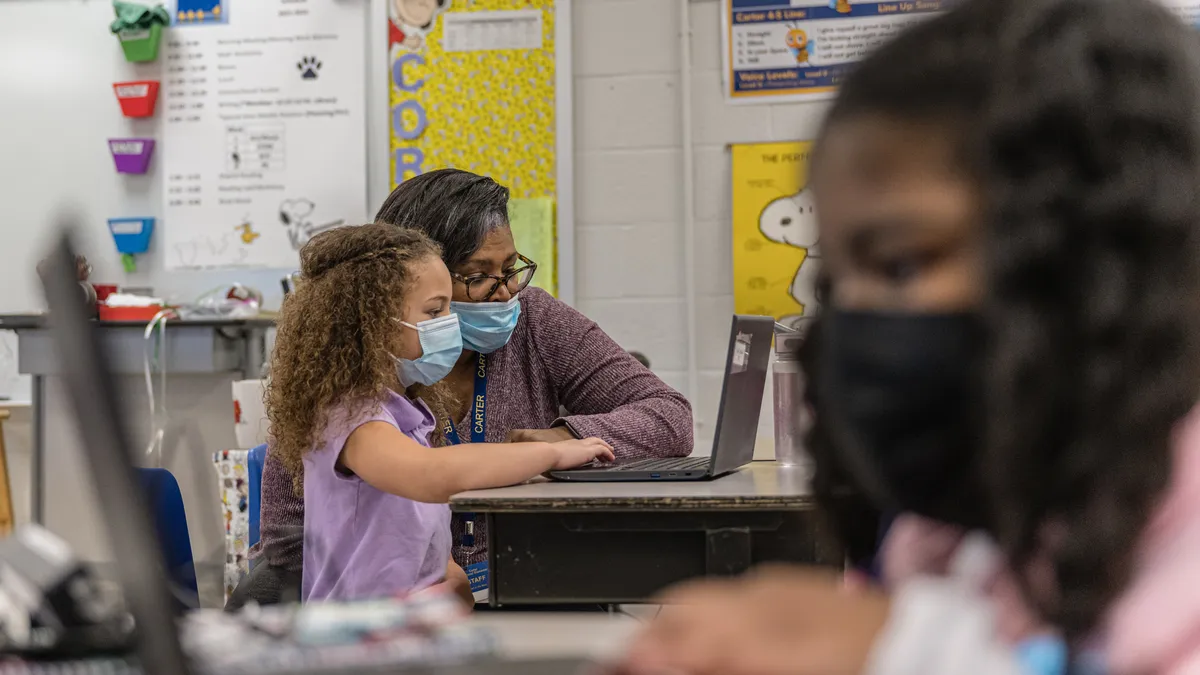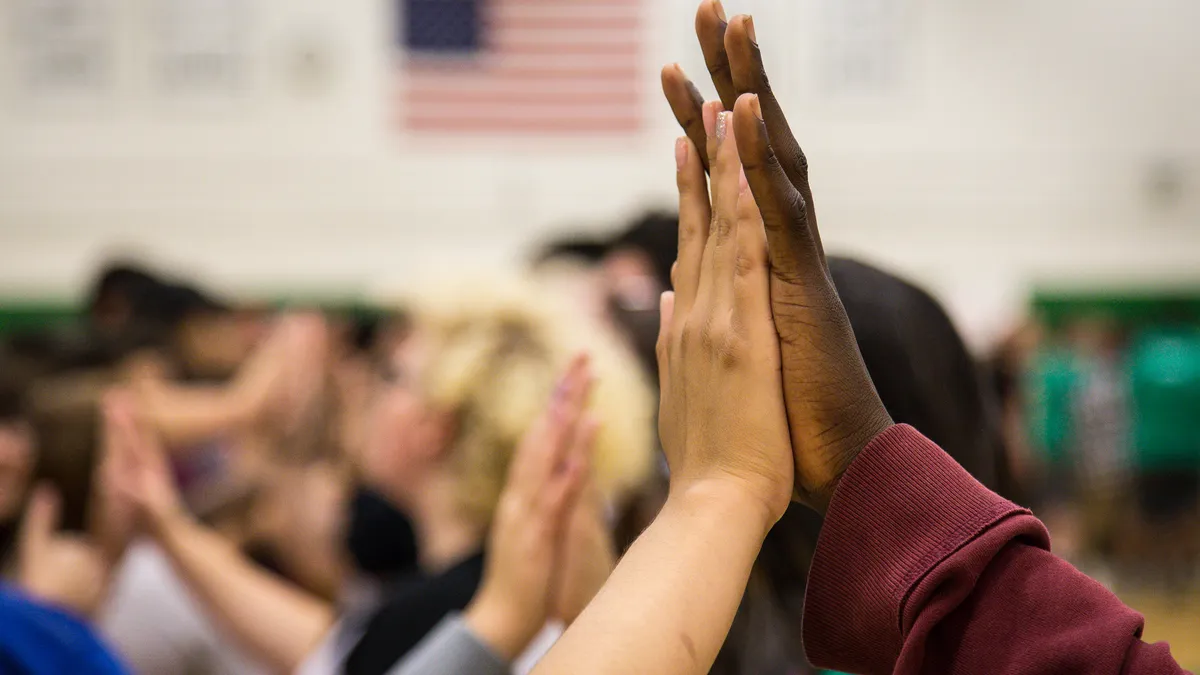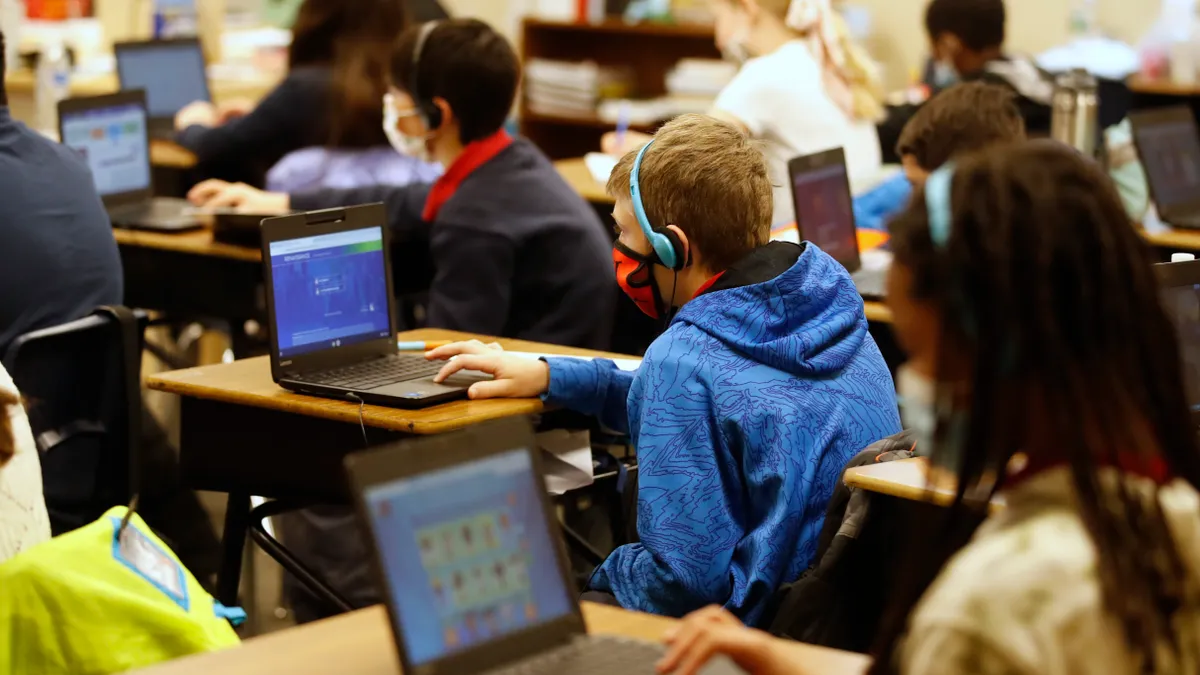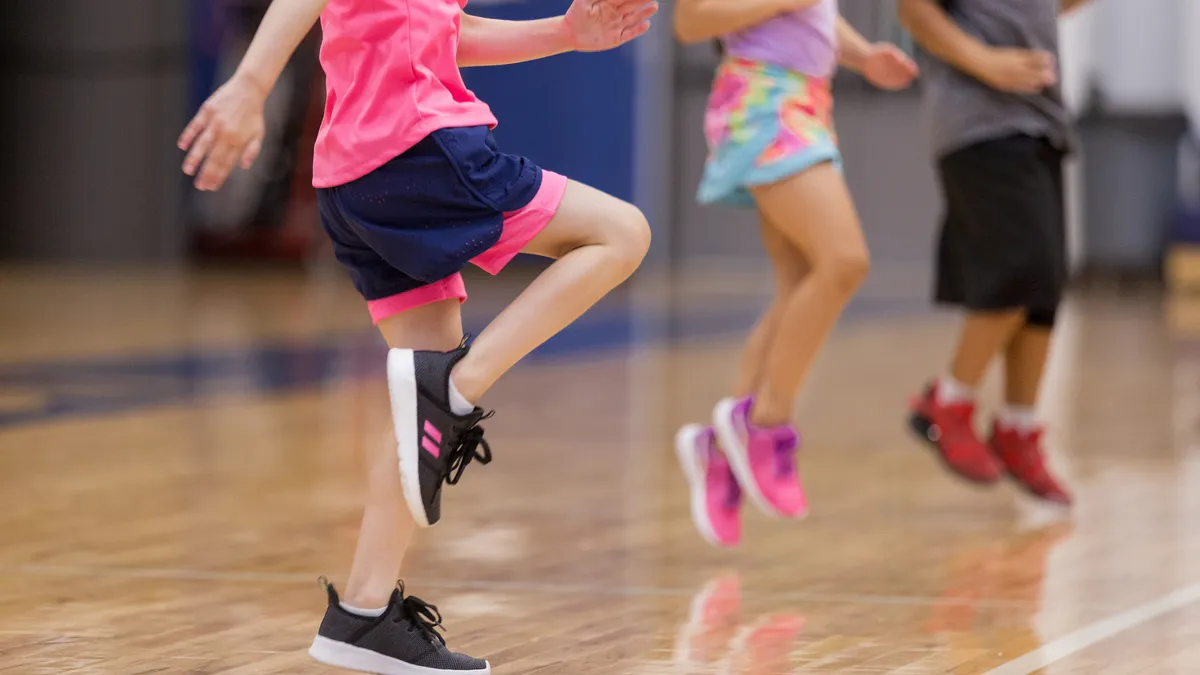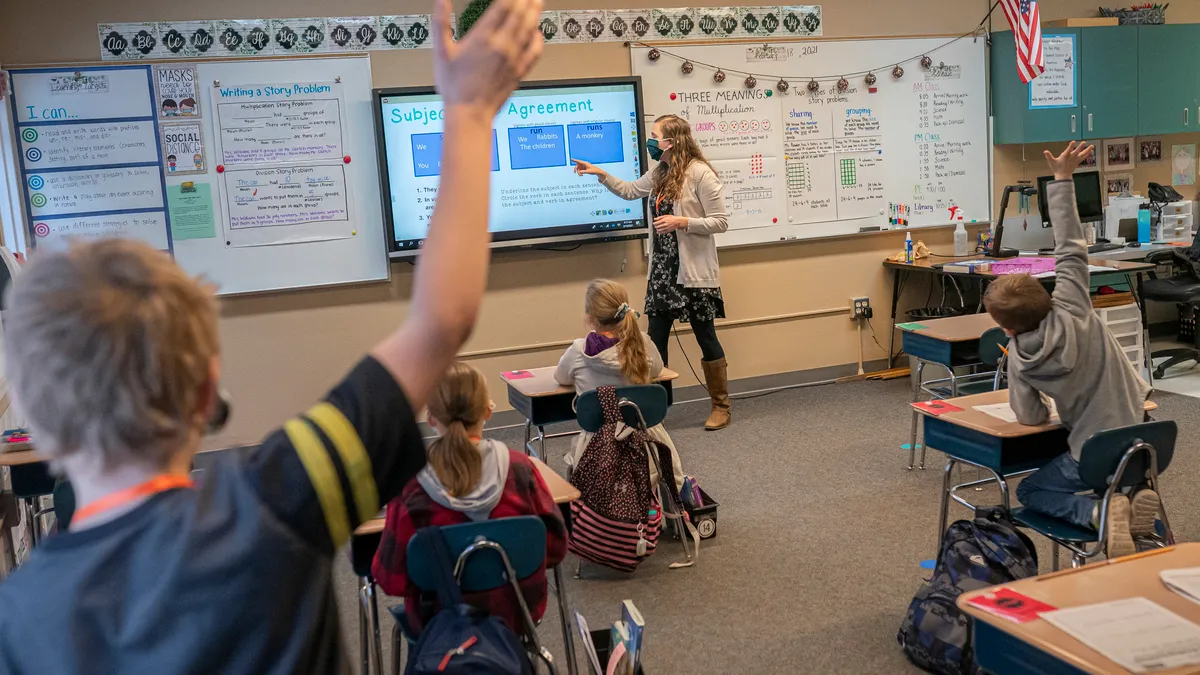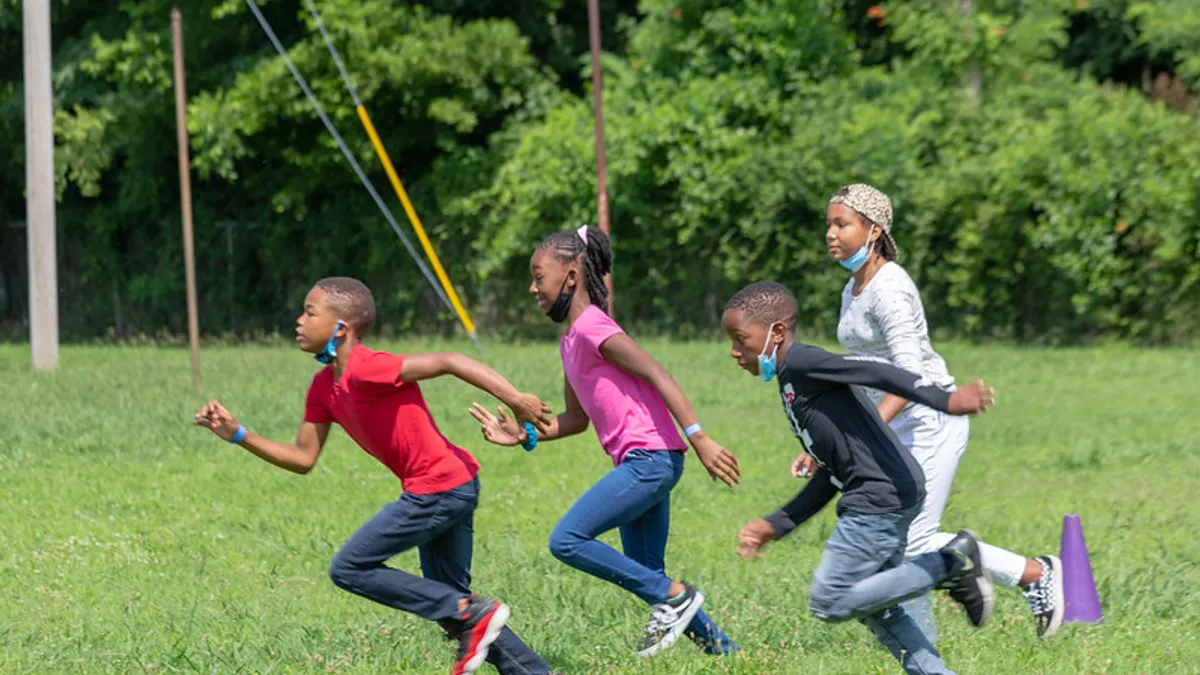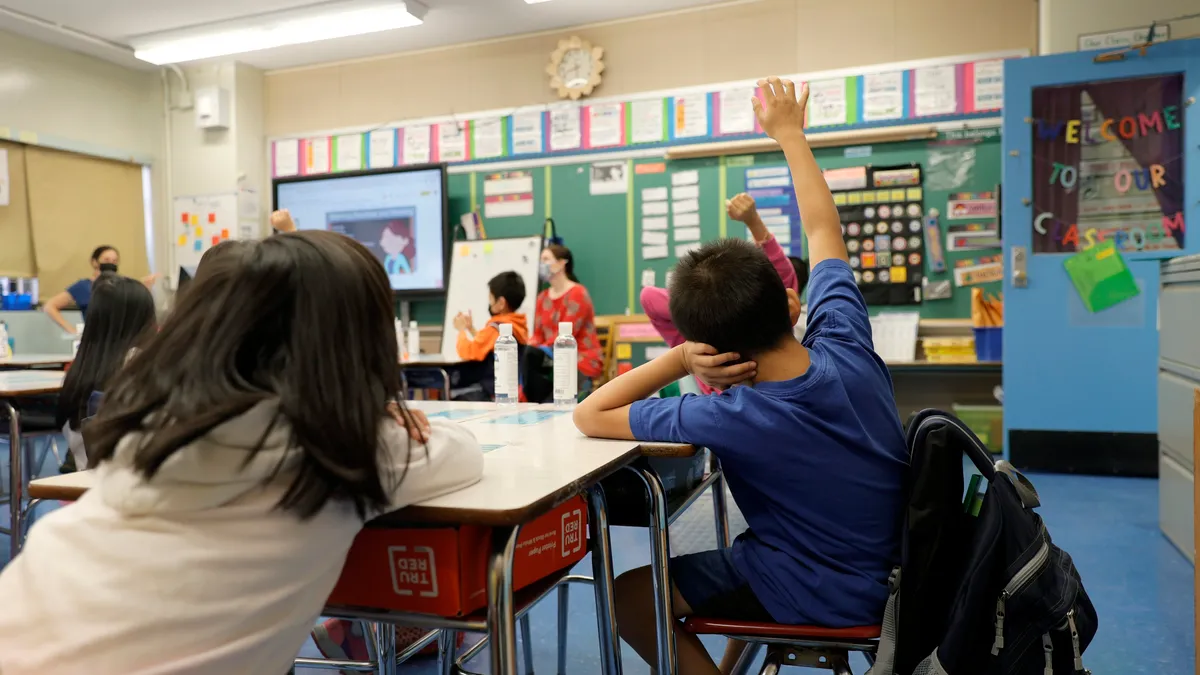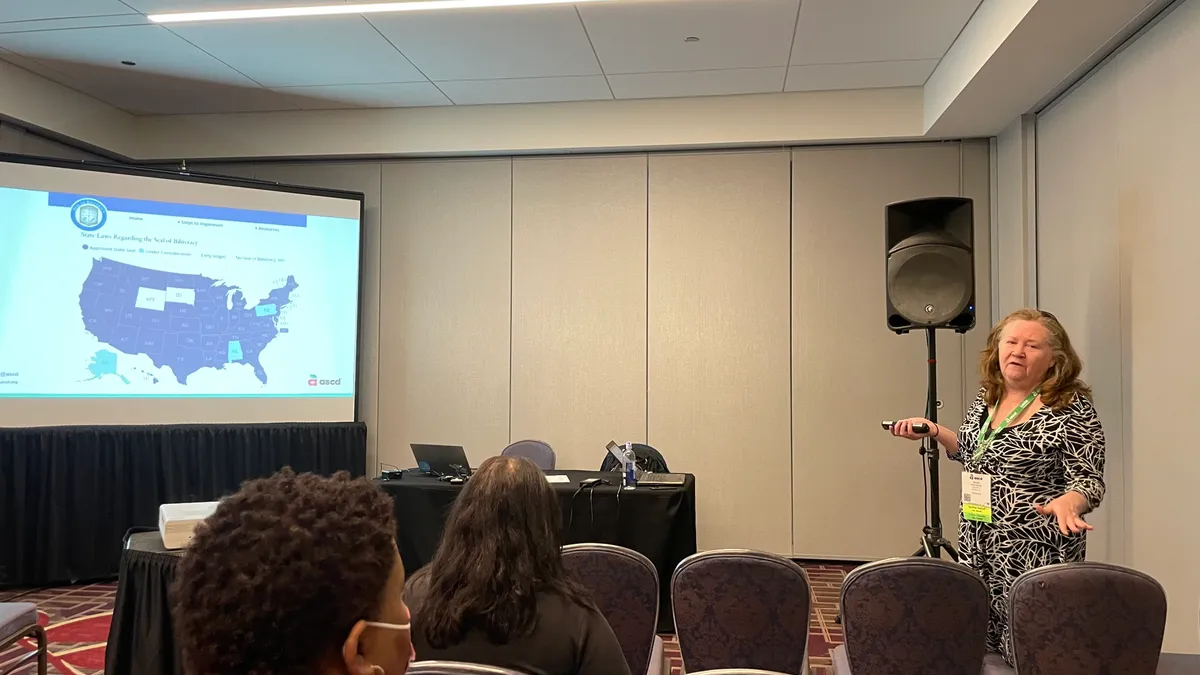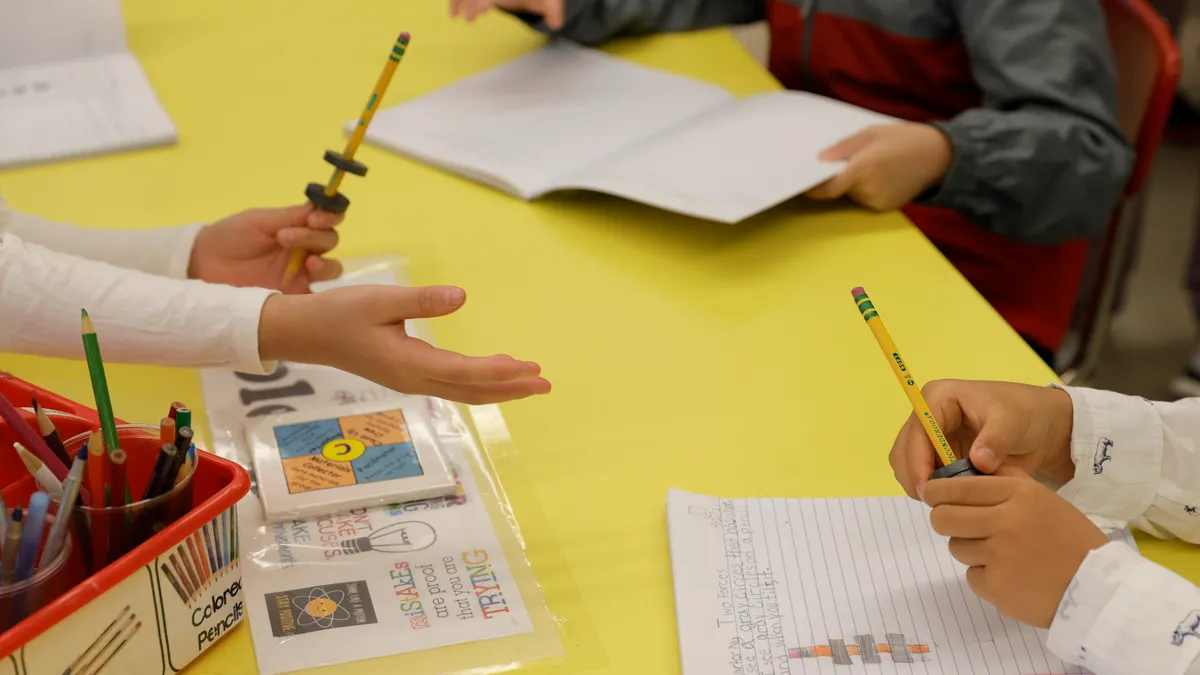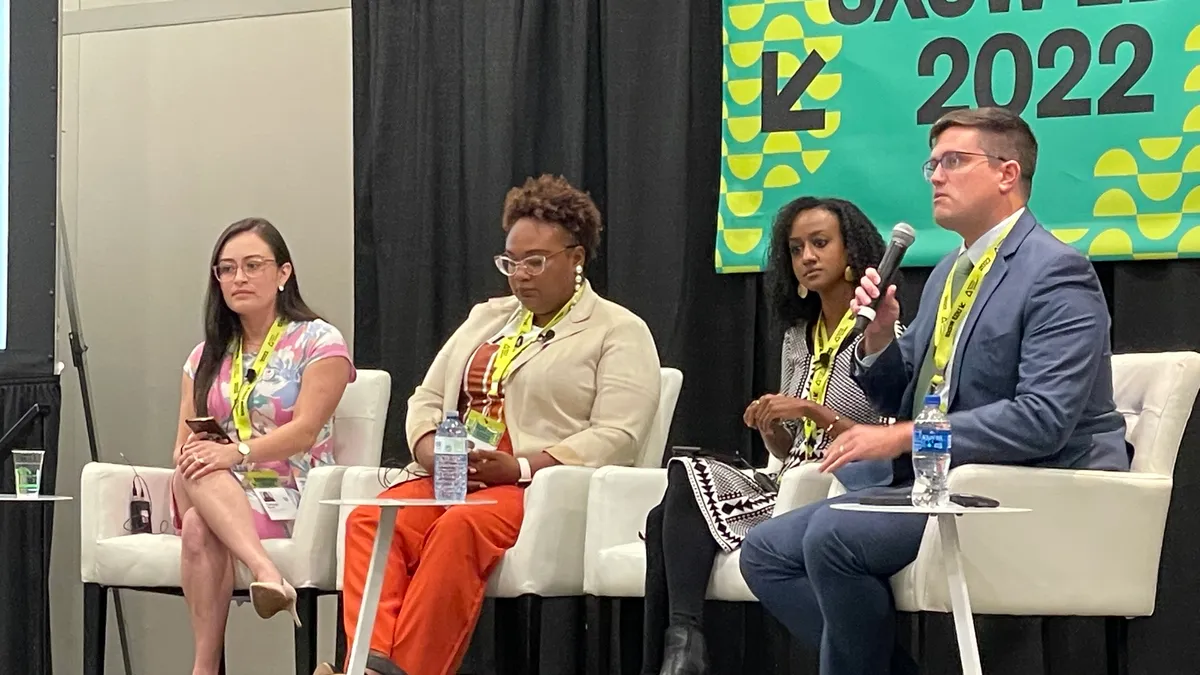Curriculum: Page 37
-
Positive student-teacher relationships boost instructional quality
University of Missouri research finds positive relationships boost teachers' motivation and confidence, leading to more interesting and relevant instruction.
By Kara Arundel • April 8, 2022 -
Rural students' achievement growth disrupted by summer slide
A set of three studies "disrupt some long-held deficit-based thinking" around rural students, students with disabilities and English learners, said one expert.
By Naaz Modan • April 8, 2022 -
Trendline
Social-Emotional Learning
Our latest K-12 Dive Trendline takes a closer look at how educators are addressing social-emotional learning amid pushback from policymakers and ongoing demand from employers.
By K-12 Dive staff -
Opinion
We need a 'Bill of Rights' for pandemic recovery
A former Education Department deputy assistant secretary suggests a 5-point plan of action for supporting student success.
By Ian Rosenblum • April 7, 2022 -
Virginia after-school partnership boosts graduation rates
Middle schoolers who participated in Richmond's NextUp RVA had an on-time graduation rate of 92% in 2021, compared to the district average of 78.8%.
By Anna Merod • April 6, 2022 -
States pour more resources into personal finance education
Financial literacy lessons in school can help students manage responsibilities they'll face in adulthood.
By Lauren Barack • April 6, 2022 -
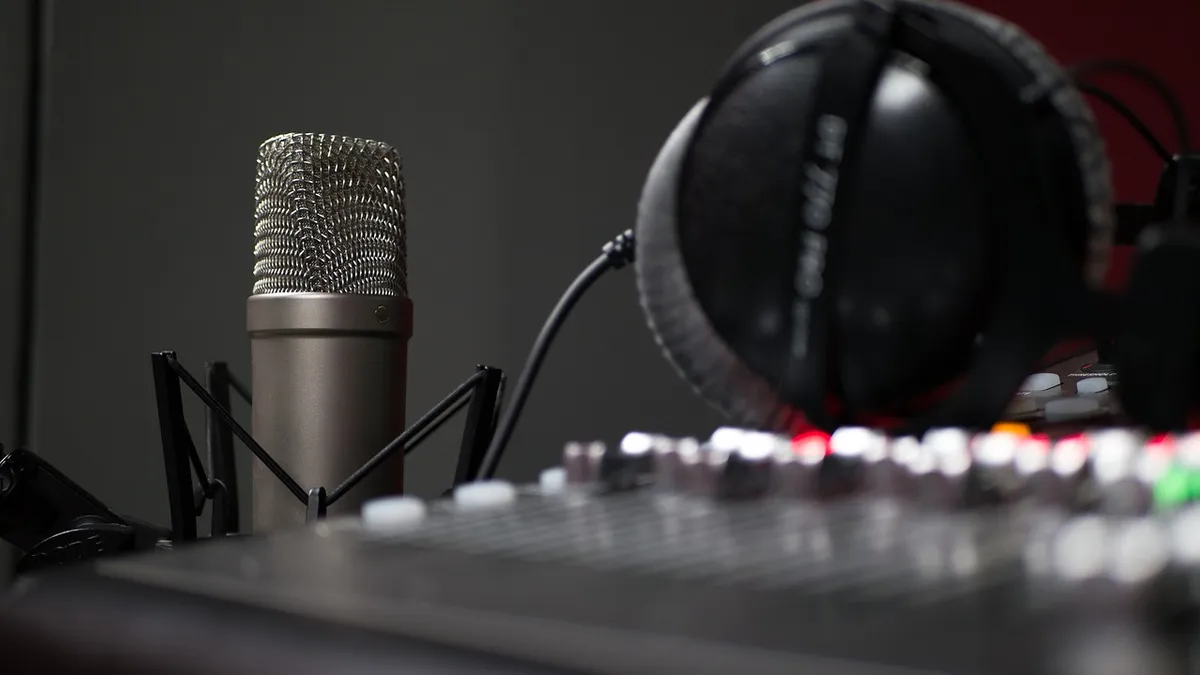
 Ahlers, Marvin. Retrieved from Pixabay.
Ahlers, Marvin. Retrieved from Pixabay.
3 ways podcasting can strengthen core academic skills
From helping students find a voice to improving their writing skills, the popular audio format can be a powerful curricular supplement.
By Lauren Barack • March 30, 2022 -
SEL builds foundations for boosting shy students' confidence
Helping students find their voice can start by establishing supportive and encouraging classroom norms centered around empathy and collaboration.
By Lauren Barack • March 30, 2022 -
Should schools invest in the metaverse?
K-12 gaming experts say districts could get left behind if they don't integrate related tech into curricula to facilitate virtual trips, AR projections and more.
By Anna Merod • March 30, 2022 -
Opinion
After 5 decades of teaching, 7 lessons my students taught me
A veteran educator writes that pedagogy must adapt to how students learn, discipline must be more compassionate and building relationships is key.
By Stephen Sroka • March 29, 2022 -
We want to hear about your school district's rising leaders
For a second year, K-12 Dive's Rising Leaders is looking for trailblazing assistant principals and district leaders to spotlight.
By Roger Riddell • March 24, 2022 -
Tulsa Public Schools fine-tunes summer programming with eye toward pandemic best practices
By adjusting staff schedules, program sites and making other tweaks, the district aims to improve on last year's successes with support from partnerships.
By Kara Arundel • March 23, 2022 -
As the school year winds down, how can educators make the most of time remaining?
From lending classroom books to expanding summer field trips, these strategies may help students avoid potential summer learning loss.
By Lauren Barack • March 23, 2022 -
High expectations, relationships key to improving ELL student experiences
A Rhode Island superintendent told ASCD conference attendees that teachers must think of ELLs as having a learning asset rather than a deficit.
By Anna Merod • March 23, 2022 -
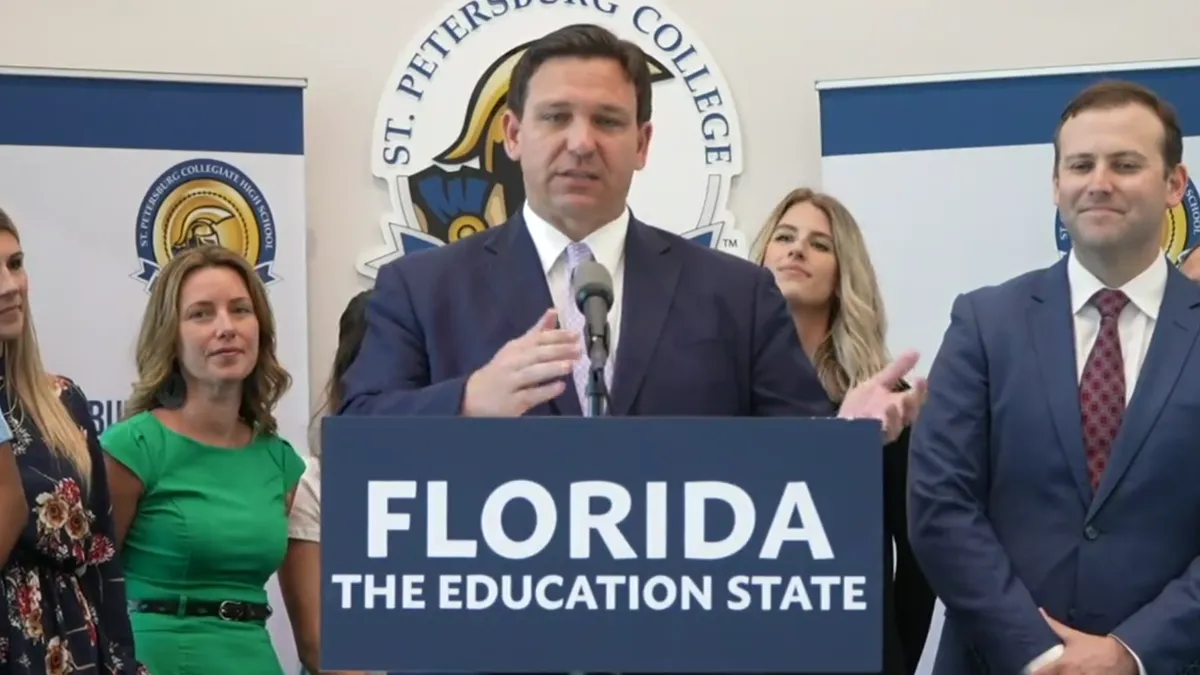
 Ron DeSantis. Retrieved from Twitter.
Ron DeSantis. Retrieved from Twitter.
Florida overhauls state assessment in favor of ‘progress monitoring system’
The "shorter," "more individualized" assessment approach will reportedly not detangle results from high-stakes accountability metrics.
By Naaz Modan • March 23, 2022 -
SXSW EDU 2022: Our recap of Austin's ed innovation extravaganza
We've rounded up all of our coverage from this year's show in one location for your convenience.
March 22, 2022 -
10-year study: GPAs, course rigor rising for high school grads
Analysis of course levels and performances from the class of 2019 can help educators plan academic content and offerings, experts say.
By Kara Arundel • March 17, 2022 -
Opinion
Connecting accessibility, third-party curriculum and student success
School districts must carefully vet digital resources to ensure IDEA compliance, two learning accessibility advocates write.
By Mary Rice and Raymond Rose • March 16, 2022 -
Personal anecdotes can humanize educators and contextualize curriculum
Carefully selected anecdotes can help students better relate to material and understand their teachers may have faced similar challenges.
By Lauren Barack • March 16, 2022 -
How a Rhode Island district adapted learning pods to improve student equity
A SXSW EDU session detailed how Central Falls School District gained community buy-in and how the model could help diversify teacher pipelines.
By Roger Riddell • March 16, 2022 -
Opinion
How the pandemic made social-emotional learning more accessible
These skills are essential for managing emotions, problem solving and building relationships, an expert writes in honor of International SEL Day.
By Katari Coleman • March 11, 2022 -
Day 3 at SXSW EDU 2022: Cardona raises student voice, district leaders discuss population shifts
The Austin ed innovation festival's third day also included principal pipeline equity discussions and a hip-hop icon promoting student mental health.
By Roger Riddell , Anna Merod • March 10, 2022 -
How project-based learning can strengthen SEL skills
PBL programs encourage strengths that children will use in school and beyond.
By Lauren Barack • March 9, 2022 -
Research-based video game aims to engage students in science curriculum
A team of researchers at the University of Missouri plans to expand the game into 60 middle school classrooms nationwide.
By Anna Merod • March 9, 2022 -
Day 2 at SXSW EDU 2022: Culture wars, 'future-proofing' classrooms, and disrupting racial inequity
The Austin, Texas, education innovation conference continued Tuesday with conversations on media literacy, workforce pathways and more.
By Roger Riddell , Anna Merod • March 8, 2022 -
DeSantis signs Florida 'Don't say gay' bill
The legislation has drawn criticism from U.S. Secretary of Education Miguel Cardona, who cited federal civil rights protections like Title IX.
By Naaz Modan • Updated March 28, 2022
